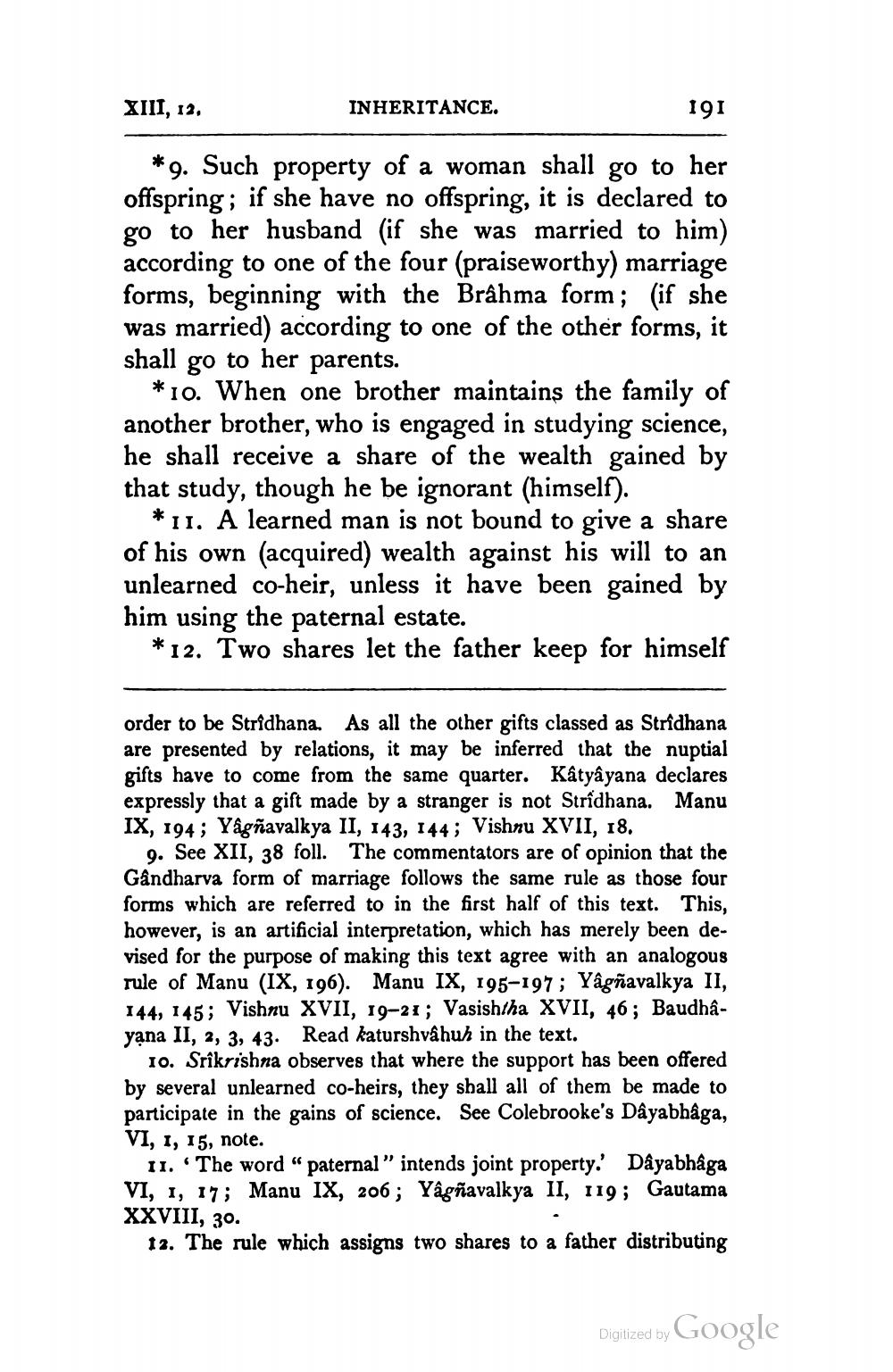________________
XIII, 12,
INHERITANCE.
191
*9. Such property of a woman shall go to her offspring; if she have no offspring, it is declared to go to her husband (if she was married to him) according to one of the four (praiseworthy) marriage forms, beginning with the Brâhma form; (if she was married) according to one of the other forms, it shall go to her parents.
*10. When one brother maintains the family of another brother, who is engaged in studying science, he shall receive a share of the wealth gained by that study, though he be ignorant (himself).
*11. A learned man is not bound to give a share of his own (acquired) wealth against his will to an unlearned co-heir, unless it have been gained by him using the paternal estate.
*12. Two shares let the father keep for himself
order to be Stridhana. As all the other gifts classed as Strîdhana are presented by relations, it may be inferred that the nuptial gifts have to come from the same quarter. Katyayana declares expressly that a gift made by a stranger is not Strîdhana. Manu IX, 194; Yagñavalkya II, 143, 144; Vishnu XVII, 18.
9. See XII, 38 foll. The commentators are of opinion that the Gandharva form of marriage follows the same rule as those four forms which are referred to in the first half of this text. This, however, is an artificial interpretation, which has merely been devised for the purpose of making this text agree with an analogous rule of Manu (IX, 196). Manu IX, 195–197; Yâgñavalkya II, 144, 145; Vishnu XVII, 19-21; Vasishtha XVII, 46; Baudhayana II, 2, 3, 43. Read katurshvâhuh in the text.
10. Srikrishna observes that where the support has been offered by several unlearned co-heirs, they shall all of them be made to participate in the gains of science. See Colebrooke's Dayabhaga, VI, 1, 15, note.
11. The word "paternal" intends joint property. Dâyabhaga VI, 1, 17; Manu IX, 206; Yâgñavalkya II, 119; Gautama XXVIII, 30.
12. The rule which assigns two shares to a father distributing
Digitized by Google




